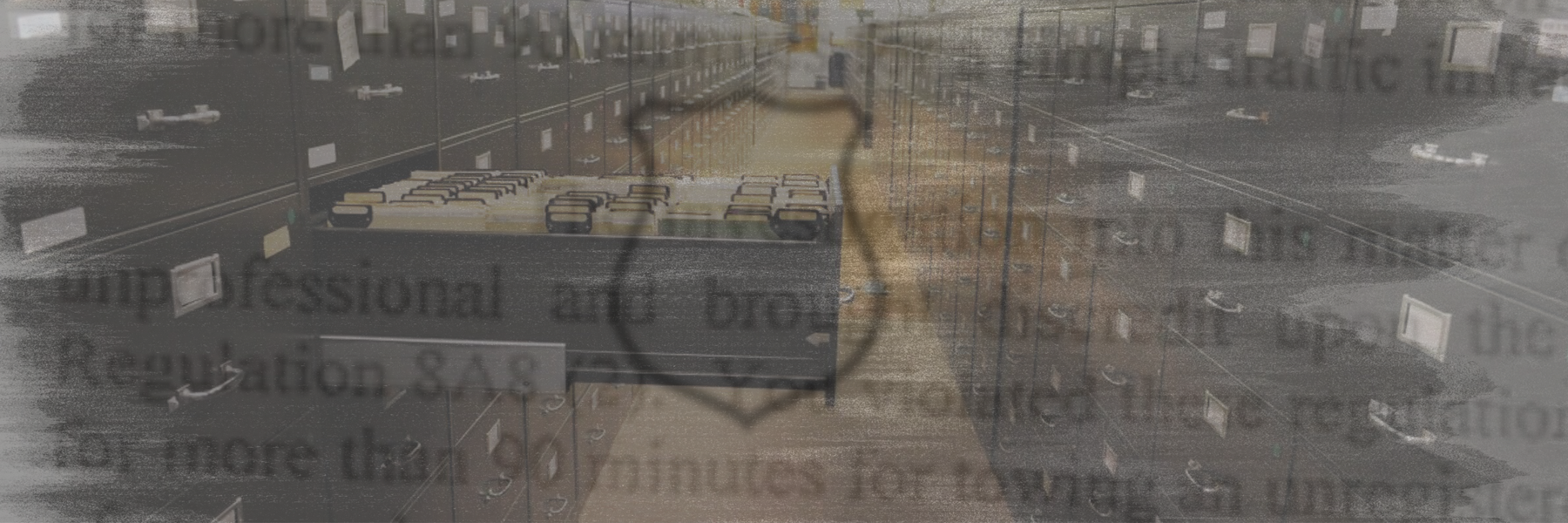A lot of stories would just never come to life unless someone thought to request information about it. Sometimes those requests are inspired by a tip from a source or just a hunch a reporter has. Sometimes its filing just to see what comes back.
If you’re feeling inspired by these requests, file a public records request of your own. And if you find a FOIA story worth sharing, send it over via email, on Twitter, or on Facebook, and maybe we’ll include it in the next roundup.
The high cost of a coverup
When an officer worked with a colleague to avoid giving a “hammered” prosecutor a breathalyzer test, they thought they were on an unrecorded line. Turns out, there were tapes, and related litigation that ensued has racked up hundreds of thousands of dollars in fines for Grand Rapids - while illustrating the extent to which officers will go to protect colleagues.
Amy Biolchini and John Agar have been reporting the story, and used public records to show the city had paid $210,880.50 in legal fees.
$72,216.60 of those fees was actually to pay MLive.com’s legal fees when the news organization sued to get access to those tapes.
The pending court case was later used by the city to claim that the five phone recordings between the officers on the night of Kuiper’s crash could not be publicly released under FOIA.
That claim was not supported by the state Court of Appeals, which ruled in September the city must release the phone calls after MLive pursued the matter in court.
MLive’s legal challenge to the Court of Appeals over the release of the phone calls was costly: not only was the city court-ordered to pay most of MLive’s legal fees in the suit - $72,216.60 - the city also spent $47,234.84 on lawyer’s fees, documents show.
Some of the legal fees - $17,042.40 worth - have been billed to the city’s insurer, the Michigan Municipal Risk Management Authority, documents show.
And the story those tapes told was incredible, as Agar reported:
Ickes called Janiskee at the Watch Commander’s desk and reported that Kuiper was “hammered.”
Janiskee told him to stop talking, and to call back on a phone line designated “non-recorded.”
Ickes: “His -his - his -his - he got through the alphabet, hand dexterities were okay. He said he couldn’t do the one foot stand because his knees were not great. So, I skipped that one and then we did a walk and turn which wasn’t awful at all. I’ve got two that were passable. One that wasn’t good.”
Janiskee: “Okay, um, how much has everybody seen there?”
Warwick:”We got him home. He’s f— up. He’s f— - he was f— up. But (Adam) did a good job.”
Warwick: “Oh. Perfect. Okay. All right, thanks. Um, so yeah, he - he’s gonna get a ticket for driving the wrong way on a one way.
On the call, the cops discussed how to avoid creating an unnecessary paper trail while strategizing about what was - and wasn’t - caught by their body cams. The city fired the officer who directed officers to let the prosecutor off with a ticket for driving the wrong way, and he subsequently sued claiming the city wiretapped his conversation.
EpiPens defects reportedly killing - and killing more often
Mylan has taken strong criticism for spiking the price of EpiPens, devices which help stave off often fatal allergic reactions, but now Bloomberg’s Anna Edney reports that complaints about defects in the devices are spiking, leaving seven dead and with over 200 cases of other failures of the devices. The data came from a Freedom of Information Act request to the Food and Drug Administration:
EpiPens, which contain the hormone epinephrine (also known as adrenaline), are used to stave off allergic reactions that can in some cases kill. Failure of EpiPens to deploy correctly have been cited in seven deaths this year through mid-September, according to reports by patients and physicians made to the U.S. Food and Drug Administration and obtained by Bloomberg News. The FDA received a total of 228 reports of EpiPen or EpiPen Jr. failures during the same time period, according to documents made available as a result of a FOIA request. In addition to the deaths, 35 people were hospitalized, according to the reports.
Busting bus stop scofflaws
Tough to get more dramatic than opening a story with a discussion of the “Death Zone,” but a recent public records-powered investigation by Erick Payne merited it: Based on tickets he obtained through an Illinois public records request, he found that dozens of drivers were busted for passing school buses when they had their stop signs out to allow kids to safely get on and off.

The request also netted details that brought the problem to life:
Police ticket dozens of drivers each year.
An 84-year old Decatur man told an officer he thought he shouldn’t be doing it as he passed the bus, but proceeded anyway. Then, he was shocked they would report him.
Another was a 16-year old who told police she was late for school. Another, a Danville man on his way to work. The list goes on.
Payne compiled the data and let readers download it themselves to dig in deeper, seeing how big the issue is in their area.
Send us your favorite FOIA stories via email , on Twitter , or on Facebook , and maybe we’ll include them in the next roundup.
Image via Moody Air Force Base




